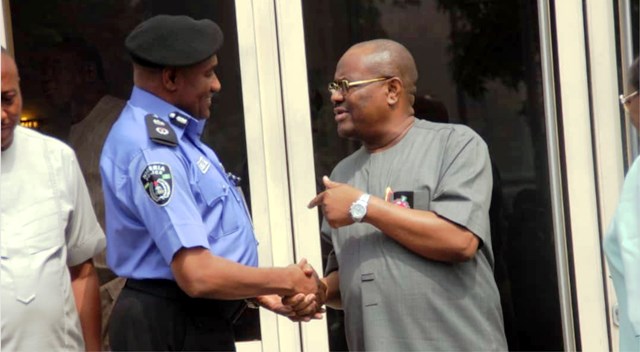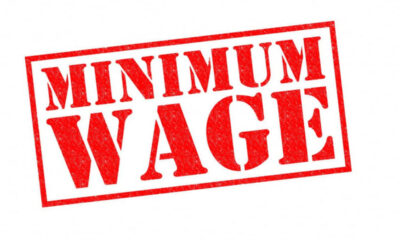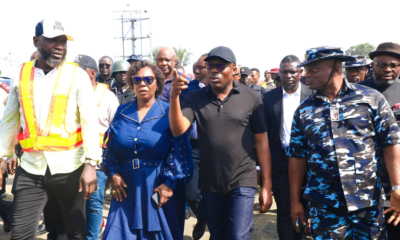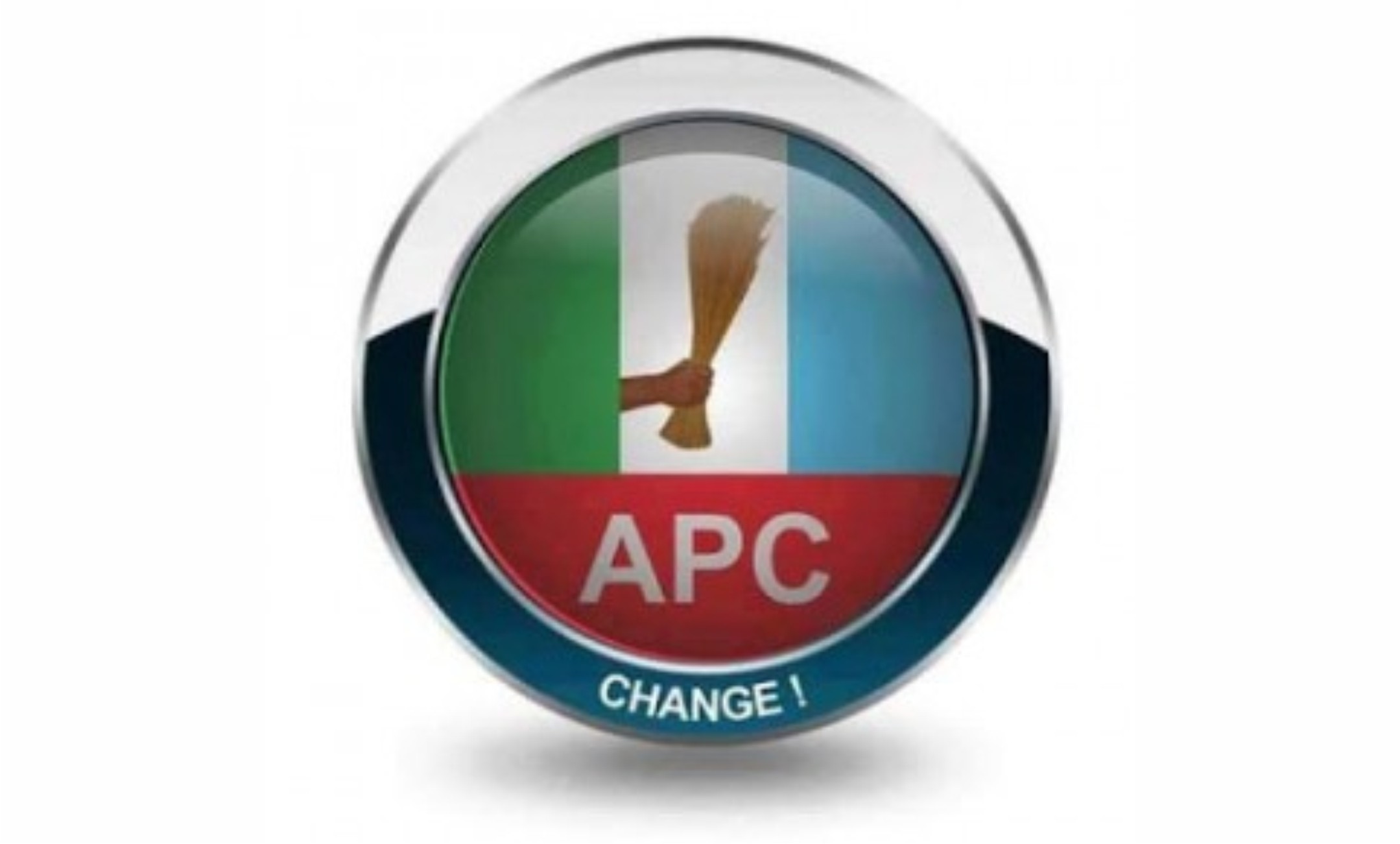News
Buhari Can’t Solve Nigeria’s Problems -US Group

The annual risk report by United States political risk consultancy corporation, Eurasia Group, has said Nigeria’s President Muhammadu Buhari is too sick and lacks the energy and creativity to solve Nigeria’s problems.
Eurasia Group’s Top 10 risks report which put Nigeria as the 10th risk, came with a focus on Nigeria’s February 2019 elections.
The report described the incumbent President Muhammadu Buhari as “an elderly, infirm leader who lacks the energy, creativity, or political savvy to move the needle on Nigeria’s most intractable problems.”
Eurasia believes that if Buhari’s health problems continue, it could impact the economic outlook of the nation with investors unsure of “who is calling the shots and whether they’re qualified for the job.”
“A politically weak president, for health or other reasons, would open the floodgates for political infighting, increasing the chances that his ruling All Progressives Congress implodes.
“That would turn a policy slowdown into paralysis. The risk of attacks on oil infrastructure would also rise because the absence of strong leadership in Abuja would make it harder to negotiate with the Niger Delta’s various militant groups,” the report said.
Buhari spent over 170 days on medical vacation in London since his inauguration in 2015, with the longest stretch in May 2017 where he was away for 104 days.
On one of his returns from London, where his doctors are, he tacitly acknowledged that he was very ill, telling his cabinet members that “I couldn’t recall being so sick since I was a young man.” He also said he had “blood transfusions, going to the laboratories and so on and so forth.”
There were talks about his death which distilled into more rumours that circulated about Buhari’s being a clone after he died on one of his medical vacations. He debunked the far-reaching body-double rumour.
With Buhari keen on a return to the Aso Rock as Nigeria heads to polls next month, Nigeria is plagued with economic, security and corruption problems.
Eurasia group predicts that the “election will be close, and a challenged or inconclusive result is possible.”
Buhari heavily campaigned on the same points in 2015 when he contested against Goodluck Jonathan.
During his tenure, he announced that the Boko Haram insurgents have been technically defeated but the terrorist groups have been resurgent launching attacks on military posts, carting away ammunition in recent months.
Nigeria was also named the World’s Poverty capital by the Brookings Institution with 86.9 people living in extreme poverty according to the World Poverty Clock.
Though Buhari’s major challenger Atiku Abubakar aggressively pushed his political mantra “Get Nigeria Working Again”, however, the report was also scathing in the assessment of the former Nigeria vice president.
The report predicted that Atiku ”would focus on enriching himself and his cronies, avoiding the difficult and politically unpopular tasks necessary for reform” if he emerges winner of the election.
Nigeria’s “most fiercely contested election since the transition to democracy in 1999” will be contested by candidates from 91 parties, with former minister for education and Bring Back Our Girls activist, Oby Ezekwesili, former Central Bank Deputy Governor, Kingsley Moghalu and Sahara Reporters Publisher, Omoyele Sowore, part of the contestants aiming to end Buhari’s reign.
While Buhari remains the frontrunner, Eurasia’s prediction on Nigeria’s future in the successful eventuality of Buhari’s reelection sounded ominous.
“A second term for him would mean the country at best muddles through the next four years, with little progress on critical policy priorities like tax reform or a restructuring of the energy sector.”
This prediction comes despite Nigeria’s Federal Inland Revenue Service (FIRS) raking in of N5.320 trillion, the highest tax revenue in the country’s history in 2018.
The Political risk consultancy firm noted that in the case of a runoff, “the complexity of organizing national elections in the country” could be a “recipe for severe uncertainty in Africa’s most important market.”
News
Let’s Fight To Save Rivers’ Soul Together

Rivers State Governor, Sir Siminalayi Fubara, has lamented that there is a fierce fight over the soul of the State to destroy it but noted that only the well-meaning persons who are standing firmly with him can wield the force of unity to save it.
Governor Fubara made the remark at the country home of Sir Celestine Omehia in Ubima community, Ikwerre Local Government Area of Rivers State on Saturday.
The Governor, accompanied by some elders of the State, was in Ubima to commiserate with Sir Omehia, who had just laid his late mother, Mrs Ezinne Cecilia Omehia, to rest after 95 years.
Governor Fubara said the visit was to demonstrate love and show support to Sir Omehia who, as a son, had satisfactorily performed the duty of giving his mother a befitting burial.
He said, “I have come here with a few of us; very respected elders of the State, to come and support you and say to you that ‘we sorrow with you’.
”The most important thing is to show our concern and love. Any human being that shows enmity to death, that person is not even normal.
”We also rejoice with you for a life lived well to fulfillment by Mama. We wish Mama safe journey. Let her stay well where she has gone.”
Governor Fubara told the elders of the need for every true lover of the State to synergise and be resolute in the fight to safeguard the soul of Rivers State.
The Governor decried the evil of politics of bitterness and the telling danger it has on the progress of the State, which according to him, should be discouraged as a bad political culture in contemporary times.
Governor Fubara said: “Anybody who claims to love this State should not be party to anything, directly or indirectly, that will bring us backwards. We will continue to support every course that will advance the interest of our dear Rivers State.
”And I am happy to say, and I’ve said it over and again, it doesn’t matter the number of people that are standing with me, I will stand on that side of truth.”
The Governor emphasised: “I will not, I repeat, I will not govern our dear State on my knees (bending). If that was the purpose, I will not do that. I will stand to govern our dear State and stand continually on the side of right.
”But politics of bitterness will not take us anywhere. So, I want to thank you that, at this stage, we have a few of you who understand that Rivers State belongs to everyone of us. We must, therefore, fight together to sustain the soul of this State,” he added.
Governor Fubara also spoke about the tanker inferno that has become a sad episode in the State with over 120 vehicles razed and about five lives lost, describing it as “great tragedy and very unfortunate.
”It is a very sad day in our dear State. Something happened in Eleme, along the route of Indorama Petrochemical and Fertiliser Company Limited. A tanker had an issue with a tipper, and there was an unfortunate situation that caused the State a very devastating loss.
”I went there this morning to see for myself what really happened, and I can tell you, I’ve not been happy since then. With all the dramas in our State, it is not even proper for us to add that to it.
”But it wasn’t our fault. It was just what impatience caused. The tanker driver, knowing the state of that road was not patient, and it resulted in that colossal loss. Over 120 vehicles were completely burnt and five lives were lost. It was very unfortunate.”
He commiserated with those who lost loved ones and others whose vehicles were burnt beyond repairs, and added that the State Government mourns and grieves with them.
In his speech, Sir Celestine Omehia, expressed appreciation, on behalf of his family, to Governor Fubara, his delegation and other friends, among whom, were those he described as matured elders, for the show of love.
He said his mother died at 95 years, which is 25 years of grace added to the 70 years as specified in the Bible, and assured that he will sustain her legacy because she was their role model.
Sir Omehia also said that he was well known as a man who takes decision and stands by it no matter the consequences.
He, therefore, declared: “I have taken a decision to be SIMplified. Where ever you go (Fubara), is where I will go. If you say tomorrow, you are no more interested in this position, I will also stop fighting for anything in Rivers State.
”But, God who gave you the opportunity will also give you all the wisdom, strength, power and everything that it takes to govern the people of Rivers State and beyond.”
He assured the Governor that almost the entire people of the State, including chiefs, elders, opinion leaders, women, youths, civil society groups and professionals across all spectrums of the State were praying and working assiduously for the success of his Administration.
Sir Omehia told the Governor that it is that support and prayers of the people that he needs to succeed, because, according to him, one with God, is with majority, and will always excel and succeed.
He, therefore, urged the Governor to continue in his strides to deliver good governance, peaceful and prosperous State to the present and future generations.
Highlights of the event were the offering of prayers by leaders of Ikwerre Supreme Council of Traditional Rulers for the Governor and his Administration as well as the symbolic presentation of gifts to Governor Fubara in appreciation of his peaceful disposition and quality leadership of the State.
Breaking News
Tanker Inferno: We’re Saddened By Extent Of Carnage -Fubara

Rivers State Governor, Sir Siminalayi Fubara, has described as very unfortunate the fire incident caused by a tanker conveying premium motor spirit (PMS), otherwise called petrol which burnt motorists and commuters beyond recognition and destroyed a good number of vehicles.
The incident occurred between Indorama Gate and Aleto Bridge on the popular and ever busy Eleme section of the East-West Road now undergoing major reconstruction by the Federal Government.
Governor Fubara expressed his sadness at the gory sights that he saw when he visited the scene of the incident, accompanied by the State Commissioner of Police, Olatunji Disu, and the State Commissioner for Energy and Natural Resources, Mr Uchechukwu Nwafor, on Saturday morning.
The Governor explained that he got a call from the Managing Director of Indorama Petrochemical and Fertiliser Company Limited in Eleme Local Government Area, informing him of the incident.
At the news of the incident, Governor Fubara stated that he immediate routed a call to the security agencies and instructed that they visit the scene to take charge of the security of the area to avoid escalation of the situation.
Governor Fubara said: “We are here to see for ourselves and get a first hand information of the incident of what happened yesterday night.
“About 7.30 – 8pm, we got information of the gravity of the incident. I was told that it was caused by a tanker vehicle that was conveying Premium Motor Spirit (PMS).
“In fact, I got the information through the MD of Indorama, and I immediately alerted the security agencies to make sure they take control of the security situation in the area.
“And from what we are seeing this morning, it was not a pleasant case. We recorded a huge number of vehicles being destroyed and lives lost.
Governor Fubara explained that he had already requested the relevant government agencies to provide him a detailed account of their findings to enable the State Government take appropriate decisions and actions to significantly remedy the situation and reduce the negative on the affected people.
“I have already asked the relevant agencies to give us a full brief so that we can come into the situation fully by seeing to how much we can support the families that are bereaved, and also cushion the effect of the loses, which I believe, is no fault of a good number of them.
“We all know the situation of this road. It is really unfortunate. Most of our people, when plying this road, should ply it with caution.
“I believe very strongly that this situation would have been avoidable, if the motorists had behaved properly. But it is late already. The damage has happened. This is the situation we have found ourselves. We will see how we can control the aftermath,” he added.
News
82nd Birthday: Odu Eulogises King Dandeson Jaja

Rivers State Deputy Governor Prof. Ngozi Nma Odu, has described King Dandeson Douglas Jaja as a great and humble King who has continued to be a light to the Kingdom of Opobo and Rivers State.
Prof Odu stated this during a thanksgiving service to mark the monarch’s 82nd birthday at St. Paul’s Anglican Church in Opobo Town, yesterday.
According to the Deputy Governor, on a special day like this, she wishes him God’s grace and innumerable blessings, stressing that his reign shall be long in good health.
In his testimony, King Dandeson Douglas Jaja, who disclosed that he is nothing without God, said his life has been God’s Gift and Grace all these years, stressing that it is the Grace of God that has brought him this far.
The king seized the moment to announce the conferment of the King Jaja Manila Tree Award, which is the highest honour in Opobo Kingdom to the State Chief Executive, Sir Siminalayi Fubara and the BALOLO of Opobo Award to Prof. Ngozi Nma Odu, the Deputy Governor on a date to be announced later.
In his Sermon, drawn from Psalm 122: 6,7,8, Ven. Emanuel Nwuju, the Vicar of St. Paul’s Anglican Church, Opobo Town, who spoke on the theme “Good Gifts Comes from God “said God has given us everything we enjoy in life, adding that whatever you are today is a gift from God.
-

 Business2 days ago
Business2 days agoAXA Mansard Backs Female-Owned MSMEs With N1.4m Grant
-

 Editorial2 days ago
Editorial2 days agoTowards Minimum Wage Implementation
-

 Nation2 days ago
Nation2 days agoSDP National Chairman Lauds FG’s Efforts To Tackle Insecurity
-

 Breaking News2 days ago
Breaking News2 days agoTanker Inferno: We’re Saddened By Extent Of Carnage -Fubara
-

 Politics2 days ago
Politics2 days agoAPC Calls For Oyo LG Poll Cancellation
-

 Rivers2 days ago
Rivers2 days agoPolice Arrest Vigilante Commander, Others Over Robbery In Rivers
-

 Education2 days ago
Education2 days agoFormer VC Advocates Drug Test For University Lecturers
-

 News2 days ago
News2 days agoSpeak Truth To Power, Prof Omotola Tells Journalists

